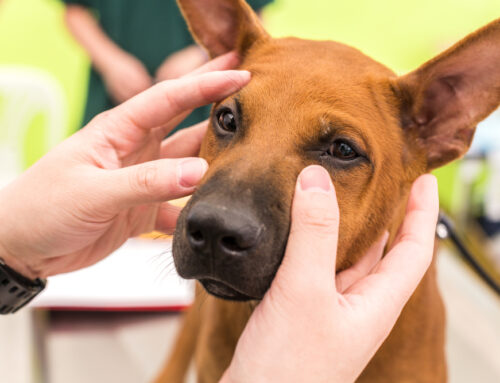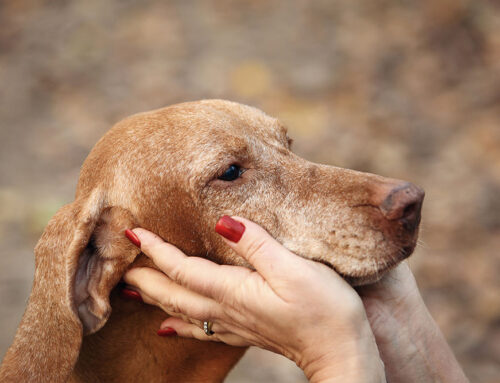Is Your Cat Drooling? Uncover the Reasons and Solutions!
As a cat owner, you may have noticed your feline friend drooling, sometimes leaving absolute puddles of saliva in their wake. While this can be a gross (but affectionate!) way for your cat to show love when they’re purring and happy, drooling isn’t always harmless. Understanding the reasons behind your cat’s drooling is crucial to addressing potential health issues. At Central Kentucky Veterinary Center in Georgetown, KY, we are here to help you uncover the causes and solutions for this behavior to keep your cat healthy and happy.
General Overview of Cat Drooling
Drooling in cats can range from normal behavior to a symptom of a serious health issue. Occasional drooling, especially when your cat is relaxed, purring, or kneading, is typically nothing to worry about. However, persistent, excessive, or sudden drooling may indicate an underlying medical problem requiring veterinary attention. This could include nausea, trauma, or exposure to toxins, which are significant concerns that pet owners should not ignore.
Reasons Behind Cat Drooling
1. Dental and Oral Issues
The most common causes of drooling in cats are related to dental or oral health problems:
- Gingivitis and Periodontal Disease: Inflammation of the gums and deeper dental structures can cause significant discomfort, leading to excessive saliva production.
- Fractured Teeth or Broken Jaw: Trauma to the mouth, such as a broken tooth or jaw, can cause pain and drooling as your cat struggles to close its mouth properly.
- Stomatitis: Severe inflammation of the soft tissues in the mouth can make eating and even closing the mouth difficult.
- Oral Ulcers: Toxic substances, burns, or infections can lead to painful ulcers, prompting drooling as the body reacts to the irritation.
Signs of Dental or Oral Issues
- Bad breath
- Pawing at the mouth
- Refusal to eat or difficulty chewing
- Swollen gums or visible tartar buildup
2. Nausea and Gastrointestinal Issues
Drooling can also be a sign of nausea. When cats feel queasy, whether from motion sickness, gastrointestinal upset, or exposure to toxins, drooling often follows. Common causes include:
- Eating something that disagrees with them
- Kidney disease, which can cause a buildup of toxins in the blood
- Motion sickness during car rides
3. Exposure to Toxins
Cats are curious creatures and may accidentally come into contact with or ingest toxic substances or plants. Toxins can cause:
- Oral or Esophageal Ulceration: Chemical burns from ingesting cleaning products, plants, or medications can lead to painful sores, causing drooling.
- Systemic Toxicity: Substances like antifreeze, certain plants, and human medications can induce nausea and salivation as the body reacts to the poison.
Symptoms of Toxic Exposure
- Vomiting
- Lethargy
- Excessive drooling or foaming
- Visible burns or sores in the mouth
For more details on toxins, visit the ASPCA’s Pet Poison Control guide.
4. Foreign Objects in the Mouth
A piece of string, a splinter, or even a small bone fragment can become lodged in your cat’s mouth or throat, triggering excessive saliva production as the body attempts to expel the object.
Symptoms of a Foreign Object
- Sudden onset of drooling
- Gagging or retching
- Pawing at the mouth
- Refusal to eat or drink
5. Stress and Anxiety
Stress can manifest physically in cats, and drooling is one potential symptom. This is most commonly observed during:
- Trips to the vet or car rides
- Changes in routine or environment
- Loud noises or unfamiliar visitors
6. Trauma to the Mouth
Injuries such as a broken jaw, fractured teeth, or burns can lead to drooling as your cat tries to manage the pain and discomfort. Trauma can occur from accidents, fights, or chewing on inappropriate items like electrical cords.

Recognizing Symptoms That Require Attention
While occasional drooling may not be cause for concern, it’s important to watch for these accompanying symptoms that could indicate a more serious issue:
- Persistent or excessive drooling lasting more than 24 hours
- Discolored or bloody saliva
- Difficulty eating or drinking
- Vomiting or signs of nausea
- Visible injuries to the mouth or teeth
- Behavioral changes, such as hiding or vocalizing
If you notice these symptoms, contact Central Kentucky Veterinary Center immediately for an evaluation.
Importance of Veterinary Care
Timely veterinary care is critical to diagnosing and addressing the cause of drooling. At Central Kentucky Veterinary Center, we offer:
- Comprehensive dental exams to identify and treat oral health problems.
- Diagnostic tests to uncover systemic or toxic causes.
- Emergency services to handle acute issues like trauma or toxin exposure.
Visit our services page for a full list of how we can help.
Treatment and Recovery Plans
Treatment depends on the underlying cause of drooling:
- Dental Issues: Treatment may involve professional cleaning, extractions, or medication for infections and inflammation.
- Toxin Exposure: Intervention could include decontamination, medications to soothe the mouth, and fluids to flush toxins from the body.
- Nausea: Anti-nausea medications and supportive care can help resolve the problem.
- Trauma: Depending on the severity, surgical repair, pain management, and wound care may be required.
Prevention of Drooling-Related Issues
Preventive measures are key to keeping your cat healthy:
- Dental Care: Brush your cat’s teeth regularly and schedule routine dental cleanings.
- Toxin Safety: Keep harmful substances, including plants and medications, out of reach.
- Routine Checkups: Regular visits to the vet can help identify potential problems early.
- Safe Environment: Remove small objects your cat could chew on or swallow.
How Central Kentucky Veterinary Center Can Help
At Central Kentucky Veterinary Center, we are dedicated to providing exceptional care for your feline friends. From diagnosing dental issues to addressing systemic concerns, we are equipped to handle a wide range of conditions.
Our AAHA accreditation ensures that your cat receives care that meets the highest standards. If you’re concerned about your cat’s drooling, don’t hesitate to reach out. Visit our contact page to schedule an appointment today.
Drooling can be your cat’s way of saying, “I love you,” or it could be a sign of a deeper problem. By understanding the potential causes and seeking veterinary care when needed, you can keep your furry friend healthy and comfortable. Trust Central Kentucky Veterinary Center to be your partner in exceptional pet care.







Leave A Comment